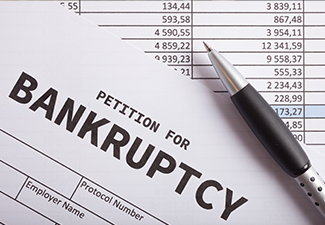Life After Bankruptcy
Nov. 15, 2021
 Believe it or not, there is life after bankruptcy. In fact, life after making the decision to file may be significantly less stressful than life was prior to filing. Rather than being stuck in place under a heavy load of debt, you can begin moving forward, facing a more positive financial future.
Believe it or not, there is life after bankruptcy. In fact, life after making the decision to file may be significantly less stressful than life was prior to filing. Rather than being stuck in place under a heavy load of debt, you can begin moving forward, facing a more positive financial future.
For Scott N. Tisevich, Attorney at Law, helping clients in Reno, Nevada, explore their debt relief options is only part of his job. Helping them understand how bankruptcy will affect their lives in the future is just as important. He is committed to giving clients the information they need to make major financial decisions.
Will Filing for Bankruptcy Stop Creditor Harassment?
Incessant calls, emails, and knocks from creditors are stressful and annoying. They can also be embarrassing if they begin contacting you at work or text you while you are in a social setting. Bankruptcy provides a way to stop creditor harassment.
Any creditor included among the debts to be addressed in your bankruptcy will be notified of a stay order issued by the court upon your filing. The order should stop the harassment and protect your assets while your case is processed.
If a creditor listed in the bankruptcy filing contacts you near the time of filing, advise them that you have filed for bankruptcy and provide them with the case number. If they continue to harass you, you or your attorney should advise the court. The court has the authority to sanction the creditor for continued contact after your case is filed.
What Happens to My Credit Report?
Filing for bankruptcy will appear on your credit report and affect your credit score for a certain number of years. If you file for Chapter 7 bankruptcy, which discharges most debt, it will remain on your credit report for 10 years. If you file for Chapter 13 bankruptcy, which restructures your debt, it will remain there for seven years.
Bear in mind that if you were making debt payments late or missing them prior to filing for bankruptcy or were using an excessive percentage of your credit at any time, your credit score was likely already poor. Discharging or restructuring debt through bankruptcy is just the first step in the process of making better financial decisions; you may need to unlearn some of your former financial habits.
What Can I Do to Fix My Credit After Bankruptcy?
You can begin the work of fixing your credit right after you file for bankruptcy. Here are some steps you can take:
Check your credit file by requesting copies of your credit report from the three major reporting bureaus. Make sure that any debt not discharged in bankruptcy which you continue to pay on appears as such on the report. Wait 90 to 120 days after court notification that your debt is fully discharged and then request your reports again to make sure they are accurate.
Make payments on remaining or new debt on time. Timely payments comprise 35% of your credit score.
Monitor your credit report and report any inaccuracies to the reporting bureau to have them corrected.
Get a credit card. You may have an aversion to credit cards since they heavily contributed to the debt that led to bankruptcy. However, you cannot repair your credit without using it, so use it wisely. A secured credit card will help you raise your score without allowing you to spend more than the amount you secure it with. If you apply for a regular credit card, beware of extremely high-interest rates charged because of your low credit score. Pay balances off in full every month.
Apply for a credit builder loan. This loan works in a similar way as a secured credit card.
Do not fall victim to credit repair scams. Once you file for bankruptcy, companies promising to fix your credit score for a fee will contact you. Only you can repair your credit, and it takes time and effort.
Develop Better Financial Habits After Bankruptcy
Living a better life after bankruptcy means not returning to old spending habits. To make the most of the new start you gain in bankruptcy, start making better financial decisions.
Create a budget and stick to it. Keep use of any credit you obtain well below the recommended 30% threshold at any one time. Begin putting money into a savings account for emergencies and into retirement accounts for the future. Wiser choices going forward will make bankruptcy now worth the effort.
How the Law Office of Scott N. Tisevich Can Help
If you are considering bankruptcy, you should consult an experienced bankruptcy attorney. What type you file or whether you file at all depends on your unique situation. Scott N. Tisevich, Attorney at Law can help. He has successfully guided clients in Reno, Nevada, and surrounding communities out of crushing debt and into a brighter life after bankruptcy.
It is up to you to make the call, so do not wait. Call now.
